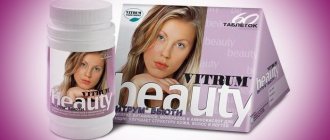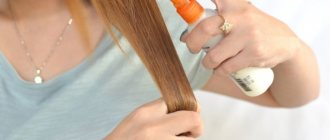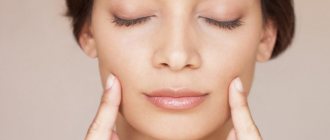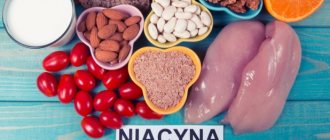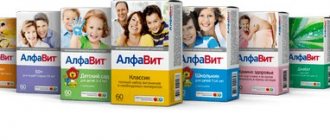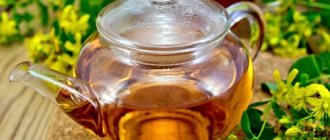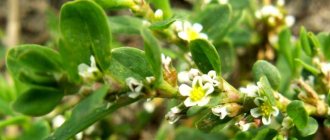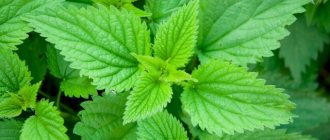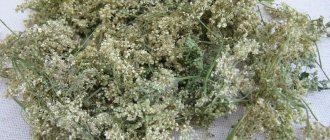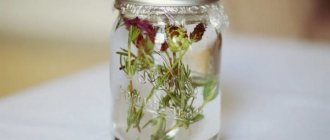Biotin or vitamin B7 is a water-soluble vitamin that is part of the vitamin B complex, a group of essential nutrients essential for proper metabolic, nerve, digestive and cardiovascular functions.
Biotin acts as a coenzyme in the body necessary for the metabolism of fatty acids, amino acids and glucose. This means that when we eat foods that are sources of fat, protein, and carbohydrates, vitamin B7—biotin—must be present to convert and use these macronutrients for physical energy to perform physical activities and for proper psychological functioning.
The benefit of biotin is that it helps us maintain a youthful and attractive appearance as it plays an important role in maintaining the health of our hair, nails and skin. In fact, biotin is sometimes given the nickname "H" vitamin, which comes from the German words "haare und haut", meaning "hair and skin". Vitamin B7/biotin is commonly added to hair and skin cosmetics, although it is not believed to absorb well into the skin and actually needs to be taken orally to absorb all the benefits.
Biotin can be found in foods such as meat, eggs, avocados, cauliflower, berries, fish, legumes and mushrooms.
History of discovery
Coenzyme R was initially identified in 1901 from yeast, as part of a complex of heat-resistant compounds (pantothenic acid, niacin, biotin). The substance did not receive “vitamin” status immediately after its discovery. This is due to the fact that biotin deficiency in the body was not common, unlike other B nutrients, the deficiency of which has caused severe conditions. Thus, with insufficiency, pellagra developed - alimentary polyneuritis.
Wilders' research on the new vitamin compound was continued by Betheman, who in 1916 conducted an investigative experiment on rats. During the test, the scientist gave egg whites to experimental laboratory rodents as the main source of biotin. A few weeks later, he discovered that the animals had muscle dysfunction, skin lesions and hair loss. At the same time, after replacing the raw yolk with a boiled one, the above symptoms disappeared.
In 1935, Kegl first isolated a substance from chicken yolk in crystalline form and named it “biotin.” Industrial production of the useful compound began only 5 years after the powder was obtained, based on the method developed by Sternbach and Goldberg. Scientists proposed using fumaric acid as a starting material, which during the reaction process made it possible to obtain D-biotin in its pure form.
Contraindications and possible consequences. Side effects
With proper use of biotin, the benefits and harms depend not only on the state of health, but also on interactions with other drugs. The vitamin cannot be combined with:
- psychopharmacological agents;
- anticonvulsants;
- antibiotics;
- provitamin b5;
- isotretinoin;
- alcohol.
Also, you should not consume biotin and dishes that contain raw protein in the same meal. This product blocks the absorption of vitamin b7, minimizing the benefits of the supplement. Biotin complexes are contraindicated for pregnant and lactating women, as well as people with individual intolerance. Side effects are associated with an allergy to the substance, which can manifest itself in the form of hives, swelling, itching or chest pain.
Excess biotin
Water-soluble biotin practically does not accumulate in the body; excess vitamin is excreted in the urine. In rare cases, prolonged oversaturation with the substance leads to the following alarming symptoms:
- frequent urination;
- allergic dermatitis;
- increased sweating.
Biotin itself is safe for the body, but the metabolism it accelerates also enhances the negative processes hidden inside the tissues.
You need to take vitamin complexes according to the instructions and in compliance with the dosages
The importance of biotin in the body
Vitamin B7 takes part in many metabolic processes, for this reason chemists included the compound in group B.
Despite the fact that biotin in the human body does not act independently, but only in the presence of digestive enzymes, the substance is necessary for energy reactions, growth, and the formation of muscle, epithelial, connective, and nervous tissues.
Biological role of vitamin H
- Promotes carbohydrate metabolism, through which the body receives energy for life.
- Controls the processes of gluconeogenesis.
- Participates in the synthesis of hemoglobin, beneficial intestinal microflora, proliferation of lymphocytes by the immune system.
- Interacts with insulin, regulates blood glucose levels, preventing the development of diabetes.
- Participates in the formation of collagen, which is necessary for the growth of hair, nails, bones, and maintaining good skin condition. For this reason, biotin is rightly called the “beauty vitamin.” Systematic intake of the beneficial compound into the body allows you to prolong the youthfulness of your facial skin and maintain a blooming appearance: smooth, strong nails, healthy, shiny curls. Considering the fact that vitamin H stops hair loss and improves its structure, the nutrient is indicated for use for mature men when “age-related” processes begin in the body, leading to the appearance of bald patches.
- Burns fat, improves protein absorption and the condition of the gastrointestinal tract.
- Participates in the transfer of carbon dioxide.
- Supports the functioning of the nervous system. Biotin acts as a catalyst for glucose in metabolism, which is necessary to nourish our brain cells. To create normal conditions for the functioning of the nervous system, you need to maintain sugar levels in the range of 80 to 100 milligrams per 100 milliliters of blood. If this indicator decreases by at least 20 milligrams, the person begins to quickly get tired, gets irritated over trifles, becomes nervous and unbalanced. When glucose drops to 40 milligrams per 100 milliliters in the blood, the body needs rest in the morning, the desire to go to work disappears, and a feeling of lack of strength arises. With a further decrease in sugar, the person cannot get out of bed and feels sick. Needed for normal functioning of the thyroid gland.
- Participates in the production of purine nucleotides, which are responsible for the transmission of hereditary information and the formation of DNA molecules. In addition, coenzyme R regulates the functioning of genes that provide intermediary metabolism.
- Activates the functions of vitamin C.
After the compound enters the digestive tract, a large amount of vitamin H is concentrated in the human liver and kidneys, then supplied to all organs.
Given that biotin performs many functions in the body, a deficiency of the compound becomes apparent quickly and clearly.
What does a woman’s body need?
The most noticeable area of application of this compound for the fair sex is the condition of nails, skin and hair. The vitamin regulates the absorption of vitamins A and E, important for youth and beauty, and is involved in fat metabolism. A sufficient amount of biotin, even without strict diet, maintains clear skin, healthy shiny hair, and smooth nails. Additional doses are useful for acne, dysfunction of the sebaceous glands, brittle nails, and for hair restoration after traumatic procedures.
The second area is the effect on the synthesis of steroid hormones (which includes progesterone, the hormone of the second phase of the cycle). Their synthesis requires fats, in the metabolism of which biotin is involved. The substance helps maintain a normal menstrual cycle, increases the likelihood of conception, and the readiness of the endometrium to accept the fertilized egg.
Vitamin H for hair
Biotin is an essential trace element for hair, as it supplies sulfur to the body's cells. Vitamin H is used to strengthen hair follicles, accelerate hair growth, prevent early gray hair, and eliminate excessive oiliness or dryness of hair.
At the same time, biotin is effective for the treatment of the following pathological conditions of the scalp: dermatitis, dandruff, seborrhea, eczema.
How does vitamin B7 affect curls?
Biotin is involved in the synthesis of red blood cells, which supply hair follicles with oxygen. As a result, the “vitality” of each strand increases. In the presence of biotin, the production of keratin protein occurs, which is “responsible” for the elasticity and strength of hair. Moreover, they contain the largest percentage of this substance. Along with this, vitamin H facilitates the process of transforming glucose and fatty acids into energy, which ensures normal hair growth.
To improve hair health, biotin is taken orally, both in its pure form and as part of complex vitamins. The daily dosage varies from 50 to 5000 micrograms, depending on the functional state of the skin and accompanying diagnoses. The course of therapy is a month.
Vitamin B7, along with oral administration, is advisable to add to shampoos, masks, balms (based on the calculation of 1 ampoule of the substance per 40 milliliters of liquid) or to use in cosmetics. When choosing “store-bought” drugs, it is recommended to give preference to concentrated mixtures, on which the manufacturer indicates the content of the active substance.
Serum based on coenzyme R is easy to prepare with your own hands at home.
“Biotin for hair” - instructions for creating a mask:
Ingredients:
- dark beer – 250 milliliters;
- vegetable oil (olive, jojoba, burdock or almond) – 10 milliliters.
Mix these components until a homogeneous suspension is obtained. Then rub the resulting mixture into the scalp and distribute along the length of the strands. The duration of the procedure is 15 minutes. It is advisable to rinse off the vitamin composition with warm water, then apply shampoo to the scalp and rinse the hair. If you use this mask 2 times a week (including for the beard) for 1.5 - 2 months, then the “unhealthy” strands will become softer, more voluminous, stronger and acquire additional shine.
Natural springs
In the natural environment, vitamin H is involved in the growth and development of not only humans or animals. While it can be synthesized only by certain types of bacteria, aquatic and terrestrial plants, as well as fungi, including yeast and mold.
Biotin is naturally produced in groups directly inside the human small intestine. However, the amount of this substance obtained as a result of metabolism is small, and its biological role in the processes of regulating fat and protein balance is invaluable.
The human body must be constantly replenished with vitamin B7, which is important for human life.
Absorption and exchange
Vitamin B7, which comes from food and is bound to protein, is initially released under the influence of proteolytic enzymes, then absorbed by the intestines, accumulating in the adrenal glands, kidneys, and liver. At the same time, biotin is partially bound by serum albumin. Animals, unlike humans, synthesize the beneficial compound by the intestinal microflora, where the substance is subsequently absorbed.
The level of vitamin in the blood remains virtually unchanged.
In healthy people, biotin excretion in urine is 11-183 micrograms per day (Oppel). In the event of the onset of B7 vitamin deficiency, the excretion of the compound in the urine is reduced to 3.6 - 7.3 micrograms. When more than 300 micrograms of the substance is introduced into the body, there is a significant increase in the concentration of the nutrient in urine, and after 6 hours 30–50% of biotin is excreted naturally. Under these conditions, the content of coenzyme R in feces remains virtually unchanged. Normally, the level of the substance is in the range of 322 - 393 micrograms per day.
In patients suffering from polio, the excretion of vitamin H increases 3 times.
In women, the content of the vitamin compound in milk in the first days after birth is insignificant, while on the 10th day its level increases to 0.38 micrograms per 100 milliliters. Subsequently, it reaches 0.9 – 11.2 micrograms. Thus, the average content of useful nutrients in human milk is twice as high after 2 weeks as immediately after birth.
Daily requirement
Many experts claim that vitamin B7 can be produced in sufficient quantities in the human body independently, while additional administration of the nutrient with food and supplements is only necessary in the case of microflora disturbances or intestinal diseases.
Instructions for use
The daily requirement of biotin is:
- for infants from birth to 3 years – 10 micrograms;
- for children from 3 to 7 years old – 25 micrograms;
- for children from 7 to 11 years old – 50 micrograms;
- for girls, women – 100 micrograms;
- for boys, men – 150 micrograms;
- during pregnancy, breastfeeding – 150 – 200 micrograms.
Let's consider cases in which the need for vitamin B7 increases by 20 - 50%:
- excessive physical activity, professional sports (swimming, football, basketball, wrestling, alpine skiing, gymnastics, figure skating, hockey, cycling, mountaineering, fencing, rowing, running);
- living in a cold climate, when the air temperature drops 35 degrees below zero;
- increased carbohydrate content in the daily menu;
- constant neuropsychic stress;
- alcohol abuse;
- dangerous burns;
- for diabetes;
- the presence of gastrointestinal diseases, which are accompanied by profuse diarrhea;
- work with chemicals (carbon disulfide, arsenic, mercury);
- long-term treatment with antibiotics.
How to take the nutrient
Coenzyme R, as a biological additive, is usually taken orally, before meals, with 100 milliliters of water.
Remember, the activity of biotin is increased by magnesium, so for better absorption of vitamin B7, experts recommend taking this microelement at the same time.
What is the name of the drug containing compound H?
Berocca plus or Alvitil.
Taking Vitamin B7
Biotin can be obtained from vitamin B complexes. Typically, they include vitamin B, B12, riboflavin and niacin.
This group of vitamins stimulates metabolism, brain and nervous system function, as well as many other important body functions.
Daily value of biotin
According to the recommendations of the US National Academy of Sciences, the recommended dose of vitamin B7 is :
- 5 mcg for newborns
- 6-8 mcg for children 7 months - 3 years
- 12 - 20 mcg for children from 4 to 13 years old
- 25 mcg for minors
- 30 mcg for adults over 19 years of age
- 30 mg for pregnant women
- 35 mg for nursing mothers
Sources in food
There are 8 different forms of vitamin B7, but only one of them can be obtained from food. This form is called “D-biotin” and is considered the most beneficial for humans.
A study was carried out in 2004. Scientists studied 51 types of foods to determine the amount of biotin. Their study concluded that the levels of the vitamin varied in each food sample. Because of this, the exact amount of vitamin B7 is often not indicated in product labeling.
Having access to a huge database of research, we only have a rough idea of the vitamin content of food.
However, we can compile a list of the most beneficial foods for those who want to get more biotin.
9 Foods Containing Biotin:
- Liver - 27-35 milligrams
- Egg - 13 - 25 milligrams
- Yeast - 1.4 - 14 milligrams per tablespoon
- Salmon - 4-5 milligrams
- Cheese - 0.4 - 2 milligrams
- Avocado - 2 - 6 milligrams
- Raspberries - 0.2 - 2 milligrams per glass
- Cauliflower - 0.2 - 2 milligrams per cup
- Whole grain bread - 0.2 - 2 milligrams per piece ()
Excellent sources of the vitamin are berries, mushrooms and seafood.
Interestingly, vitamin B7 is present in the yolk of the egg and is completely absent from the white. And the protein itself contains substances that negatively affect biotin. Thus, people who eat only proteins may experience biotin deficiency.
How to get biotin from food?
To get more vitamin B7, just follow these simple tips:
- Add protein-rich foods to your breakfast or lunch, such as eggs;
- eat more berries and cheese when you want a treat;
- prepare cabbage products; cauliflower casserole with cheese can be especially tasty;
- add avocado to your diet.
Hypovitaminosis and hypervitaminosis
Despite the prevalence of biotin in nature, a poor diet, unhealthy lifestyle and other factors can lead to a lack of vitamin H in the body.
Reasons for the development of B 7 - hypovitaminosis:
- therapy with antibiotics or sulfonamide drugs, causing the death of beneficial microflora in the body;
- prolonged fasting or adherence to “strict” diets;
- digestive disorders caused by atrophy of the mucous membrane of the stomach and small intestine;
- hereditary disorders of metabolic processes in the body;
- pregnancy occurring with toxicosis;
- insufficient intake of vitamin H from mother's breast milk (in newborns);
- abuse of alcoholic beverages and sweeteners;
- the presence of dysbiosis that interferes with the normal synthesis of biotin;
- regular intake of protein mixtures based on raw eggs (in professional sports).
For people at risk of developing B7 hypovitaminosis, it is important to recognize the signs of biotin deficiency before they lead to depletion of the body and the development of diseases.
Symptoms of acute coenzyme R deficiency:
- constant peeling of the skin (especially around the mouth and nose);
- fast fatiguability;
- rashes on the arms, legs or cheeks (dermatitis);
- drowsiness;
- decreased energy;
- excessive dryness of the body;
- loss of appetite;
- swelling of the tongue or smoothness of the “papillae” on it;
- attacks of nausea, sometimes turning into vomiting;
- muscle pain;
- signs of anemia;
- tingling or numbness in the extremities.
If signs of B7 deficiency are detected, it is important to immediately consult a doctor to prescribe “biotin” therapy. If nutrient deficiency is not corrected for a long time, in 50% of cases this leads to complications.
Secondary symptoms manifested against the background of chronic H-deficiency:
- decreased immunity, and as a result, the development of autoimmune diseases;
- exhaustion of the body;
- progression of dermatitis, psoriasis;
- anxiety, nervous disorders;
- deep depression, obsessive hallucinations;
- drowsiness;
- high concentrations of cholesterol and sugar in the blood serum;
- anemia;
- loss of appetite;
- deterioration of the structure of hair and nails;
- decreased vascular tone, resulting in arterial hypotension;
- dysfunction of amino acid and carbohydrate metabolism.
To prevent the risk of developing hypovitaminosis, the daily diet is enriched with foods or vitamin complexes containing biotin. At the same time, it is advisable to use nutritional supplements in a prophylactic dose (50 micrograms) on an ongoing basis.
Biotin hypervitaminosis is a rare phenomenon, since its excess is excreted from the body in the urine. However, taking the substance in large quantities, exceeding 10 times the daily norm, leads to increased urination and increased sweating.
Biotin for multiple sclerosis
Multiple sclerosis develops when the sheath of nerve fibers, which consists of myelin, is damaged. Biotin - improves their metabolism. Vitamin B7 accelerates the production of myelin, which improves the functioning of the entire nervous system and, as a result, slows down the development of multiple sclerosis. Also, biotin suppresses the symptoms of this pathology.
Studies have shown the effect of biotin: with regular consumption of 10 times the daily requirement, the symptoms of multiple sclerosis became less pronounced. The sensations of pain decreased and the energy component of metabolism normalized.
In France, patients reported improved vision with increasing doses of vitamin B7. Improvement in vision and elimination of partial paralysis were also noted in experiments in Canada. At the same time, as a result of all experiments, clinical indicators improved in 91% of patients.
Biotin for cats
Biotin is an essential anti-shedding vitamin for cats. This is evidenced by scientific research by many veterinarians. During experiments, doctors found that vitamin B7 deficiency in cats leads to hair loss and inflammation of the hair.
Remember, a lack of vitamin H in an animal is indicated by dried discharge in the nose, eyes and loss of pigmentation. Also, a lack of biotin in a pet’s body is indicated by the appearance of dandruff and hair loss (first on the limbs, and then throughout the body).
To prevent B7 deficiency, it is advisable to give your pet raw yolk (once a week) and multivitamin complexes containing a beneficial compound. These recommendations are especially relevant when preparing animals for an exhibition competition.
Effects of using “biotin” products:
- acceleration of fur renewal;
- healing of skin wounds;
- maintaining the natural shine of the coat;
- improving skin smoothness;
- strengthening hair scales;
- adding brightness to color;
- prevention of B 7 – hypovitaminosis and embryonic mortality.
In addition, regular feeding of pets with vitamin H and taurine leads to strengthening of the heart muscle of animals, normalization of the digestive tract and improvement of the functional state of the liver and kidneys.
Let's look at which vitamin complexes for cats contain biotin.
Preparations with coenzyme R
- Kitty's Taurin – Biotin (Beaphar) is an ideally balanced complex for maintaining the beauty of the coat of domestic cats. This composition contains biotin, taurine, calcium, phosphorus, tocopherol, fiber, potassium, magnesium, B vitamins obtained from natural yeast. The daily norm for adult pets is 3 – 6 tablets. Before preparing an animal for exhibition competitions, the daily dose of the drug can be increased to 8 - 10 pieces.
- Cat Felltop Gel (Canina) is a liquid preparation based on biotin and zinc for the prevention and treatment of skin diseases in cats. The medicine eliminates foci of inflammation in a short time, nourishing the pet’s coat. Therapeutic dosage for adults is 3 - 5 milliliters per day. The course of treatment is 6 weeks, after this time they switch to a maintenance portion - 1.5 - 2.5 milliliters per day. The solution can be mixed with food.
- Cat – Fell OK (Canina) – a universal biotin-based supplement for cats of all ages and breeds. This complex is a “godsend” for picky animals, since it does not cause problems with eating. The daily dosage of the vitamin is 4 – 6 tablets, depending on the size of the pet. Duration of administration - 6 weeks. If the cat has problems with hair or skin, during the first month the daily dose is doubled. For preventive purposes (2 tablets per day), the drug can be taken on an ongoing basis.
- Laveta Super For Cats (Beaphar) is a multivitamin solution containing biotin, thiamine, pantothenic acid, tocopherol, nicotinamide, taurine, riboflavin, pyridoxine, cobalamin. This drug promotes high-quality and rapid shedding, strengthens the coat, eliminates itching, improves coat color, prevents the loss of healthy stubble and the appearance of dandruff. The daily portion for kittens weighing up to 100 grams is 2 drops (0.1 milliliter), and for kittens weighing up to 100 grams - 500 grams – 5 drops (0.25 milliliters). Animals weighing from 500 grams to 2.5 kilograms are prescribed 15 drops (0.75 milliliters), those weighing 2.5 - 5 kilograms - 25 drops (1.25 milliliters), and those weighing 5 - 9 kilograms - 35 drops ( 1.75 milliliters). During periods of stress and molting, this drug is used daily, after adding it to food or drinking water.
- Petvital Derm Caps or Petvital Derm-Liquid (Canina) are food supplements for cats and dogs based on evening primrose oil with the addition of biotin and zinc (available in capsule and liquid form). Medicines help to activate cellular metabolism in the animal’s skin, saturate the body with polyunsaturated fatty acids and reduce inflammatory reactions in the genital organs of females. With regular use of the product, the pet’s “fat ears and tail” syndrome, allergic reactions, demodicosis, itchy skin, dandruff, eczema disappear and hair stops falling out. Therapeutic dosage for cats is 1 capsule per day, for dogs – 1 tablet per 10 kilograms animal weight. The course of therapy is 2 weeks. Preventive dosage regimen: 2-3 times every 7 days. The daily portion of the liquid supplement is determined based on the pet’s body weight: 8 drops (0.4 milliliters) per 10 kilograms of weight.
- Felvit N (Biofaktory) is a balanced vitamin complex for cats with a high biotin content. The drug supports healthy coat pigmentation, heals skin wounds and accelerates the shedding process. Daily dosage – 1 tablet.
- Katzentabs (Gimpet) is a dietary supplement for cats based on seaweed and biotin. Along with these substances, the drug contains a milk sugar derivative with a high concentration of TGOS (transgalacto-oligosaccharides) and vitamins A, B1, D3, B2, B12, B6, K3, E. The components of the complex ensure proper intestinal function, intense coat color and an attractive appearance of the skin. cover. For daily use, kittens are prescribed 3–4 tablets per day, and adults – 4–6 tablets.
Remember, animals that are fed low-quality ready-made food or natural products need constant vitamin support.
At the same time, which brand is better to buy the drug depends on the diet and health status of the pet. If animals are fed high-quality mixtures (Hills, Acana), it is advisable to use food additives in courses (once a quarter).
Instructions for use of vitamin B7 for people
Considering the fact that biotin supplies sulfur to the body, is part of “skin” enzymes, is involved in the synthesis of polyunsaturated fatty acids in the liver and metabolic processes in the pancreas, it is most often used for the treatment and prevention of pathological conditions of the dermis and nails and hair.
Vitamin H is available in ampoules, drops, tablets and capsules.
Indications for use:
- disruption of skin keratinization processes;
- dermatitis;
- psoriasis;
- eczema;
- hyperfunction of the sebaceous glands;
- seborrhea of the scalp;
- alopecia;
- acne;
- dandruff;
- slow hair growth;
- early gray hair;
- structural changes in the nail plates (softness, separation, fragility);
- excessive dry skin;
- hyperkeratosis;
- apathy;
- depression (as part of complex therapy);
- malabsorption syndrome;
- hyperesthesia;
- psycho-emotional lability;
- decreased performance;
- chronic fatigue syndrome;
- muscle weakness;
- hereditary metabolic disorders with biotinidase deficiency;
- preparation for peelings;
- hypovitaminosis of vitamin B7 while taking antibiotics, sulfonamides, alcohol, anticonvulsants.
In addition, biotin is used as part of complex therapy for diabetes mellitus, liver cirrhosis, hypertension, atherosclerosis and cancer.
Contraindications: children's age, individual intolerance. It is advisable for pregnant and lactating women to consult their doctor before taking the drug.
When consuming biotin, allergic side effects may occur: swelling of the laryngeal mucosa, skin rashes, chest pain (if intolerant to the substance).
If these reactions occur, the drug is immediately discontinued.
How to take vitamin H correctly
The drug (in tablets, capsules and drops) is taken orally once a day (preferably before meals), with a small amount of clean water.
The average therapeutic dosage is 5 milligrams per day.
In case of malabsorption syndrome and hereditary deficiency of biotin-dependent enzymes, the daily portion of the substance is increased to 10 milligrams, and in case of multiple carboxylase deficiency - up to 20 milligrams. At the same time, the doctor selects the exact dosage, depending on the patient’s condition, the severity of the pathology and the drug complexes taken. The duration of treatment, as a rule, does not exceed 30 days.
For nails and hair, the effective daily dosage is 2.5 grams.
The vitamin in ampoules is administered intramuscularly, 2 milliliters (1 bottle) once a day. For external use, rub the contents into the steamed scalp for three minutes. In addition, the injection solution is used in mesotherapy (hydromesotherapy, mesoglow, mesolift) to eliminate inflammation, normalize sebum production and tighten facial skin.
Biotin analogues:
- medobiotin;
- volvit;
- deakura;
- NeoVial (Biotin) 0.1% (ampoules);
- Puritan's pride 3,000 (in drops).
Biotin tablets are absorbed in the digestive tract, entering the blood through the intestinal wall. “Ampoule” vitamin bypasses endogenous synthesis and immediately enters the plasma to proteins. Therefore, for people with pathologies of the intestinal mucosa, the optimal form of administration of the drug is “injection”.
Biotin and human health.
Healthy skin, nails and hair.
Signs of biotin deficiency include hair loss, rashes, and brittle nails. Marketers immediately took advantage of this to sell drugs containing this substance. They promote biotin supplements as essential for hair, skin and nails benefits. However, there are very few scientifically proven facts about this, and they are all based on several short studies. The evidence for biotin supplementation for brittle nails includes three small studies. They did not include a placebo group, and these studies did not record subjects' baseline drug status before the start of the experiment.
More details
One of these studies assessed the effects of 2.5 mg/day of biotin for 6-15 months in 22 women with brittle, splitting nails and 10 volunteers without these symptoms. In 8 patients with brittle nails whose nails were sampled before and after the biotin supplementation experiment, nail thickness increased by 25%. In 14 patients with brittle nails whose nail samples were obtained 2-4 months after the start of treatment and 1-4 months after it ended, nail thickness increased by 7% (which was not a static value)
In another study, 45 patients with thin and brittle nails were asked to take 2.5 mg of biotin daily for 5.5 months. In this experiment, thickening and hardening of the nails was observed in 41 patients.
A third retrospective study of 35 patients with brittle nails found improvement in nail condition in 22 or 63% of cases.
Available reports on the benefits of biotin for hair health only apply to children. These studies showed that in children with mismatched hair syndrome (a rare disorder), 3-5 mg/day of biotin significantly improved hair health after 3-4 months of supplementation.
Evidence supporting the use of biotin supplements for skin health is limited to small case reports of decreased dermatitis and rashes, as well as baldness, when taking 100 mcg to 10 mg of vitamin B7 per day. Also, all these reports relate only to infants.
More research is needed in this area. And ordinary consumers should not blindly believe everything that advertising companies are trying to impose on them.
Biotin for horses
Horses require a systematic intake of biotin into the body to form healthy horny material in the hooves and improve the structure of the coat. To do this, the animal’s daily diet is enriched with special mixtures containing this nutrient. However, novice horse breeders do not always understand why they are needed and where to get feed mixtures for horses. Let's look at the role of supplements and the regimen for taking them.
Popular vitamin mixtures for stallions
- Biotin Horse (Equolyt) is a multivitamin preparation available in the form of tablets or powder with a high content of vitamin B7. The first type of mixture is used to increase the resistance of the hoof horn to physical stress in trotting, sports and racing horses. The powder preparation is used for hobby animals, breeding stallions and growing young animals. The daily dosage for pets weighing between 300 and 500 kilograms is 15 grams, for foals and horses weighing up to 300 kilograms – 10 grams. With a body weight of more than 500 kilograms, the daily portion is increased to 20 grams. Feeding course – 5 months.
- NutriHorse H Biotin (Biofactory) is a fortified supplement based on biotin, zinc, DL-methionine and vitamin B6. The feed mixture supports high-quality coat turnover (when the additive is introduced into the animal’s diet a month before the start of “molting”). The daily portion of the substance is calculated based on the body weight of the horse and the purpose of intake. The preventive dose of food is 1.5 grams for every 100 kilograms of animal weight, the therapeutic dose is 3 grams.
- Biotin Plus (Luposan) – additional nutrition in granules for intensive hair growth, accelerating tendon regeneration, and strengthening horses’ hooves. The food contains: biotin, zinc, copper, cobalt, manganese, selenium, amino acids, vitamins A, B 1, C, B6, E, B 12, D 3, PP, B4 and B 9. Regular intake of a vitamin supplement helps prevent skin pathologies in animals, nervousness, loss of power and muscle tension associated with biotin deficiency. The daily nutrient intake for a horse is 10–12 grams. The course of admission is 6 – 9 months.
- Hoof Biotin (Audevard) is a multivitamin mixture to strengthen the connective tissue structure, protect the horse's skin, increase hoof strength, and improve blood flow to the leg. The daily serving is 20 grams, which corresponds to 20 milligrams of pure biotin.
- Profeet Liquid (NAF) is a professional vitamin complex for horses, created by veterinarian scientists. This drug, thanks to the presence of biotin and antioxidants, supports healthy hoof growth, protecting them from kinks and cracks. The average daily dose for an adult horse weighing 400 - 600 kilograms is 25 milliliters.
Best materials of the month
- Coronaviruses: SARS-CoV-2 (COVID-19)
- Antibiotics for the prevention and treatment of COVID-19: how effective are they?
- The most common "office" diseases
- Does vodka kill coronavirus?
- How to stay alive on our roads?
Preventive feeding of horses with supplements containing biotin is the key to strong hooves, shiny coat and smooth skin.
Interaction with other substances
Vitamin B7, when ingested, is part of high-molecular compounds that participate in enzymatic metabolism. However, some substances inhibit the absorption of biotin, as a result of which the normal process of biochemical reactions is disrupted. In view of this, before taking the supplement, we recommend studying the compatibility scale of the compound with other drugs.
Interaction of vitamin H with certain substances
- Nicotine and alcoholic beverages neutralize the pharmacological properties of biotin.
- Raw eggs inhibit the absorption of vitamin H into the blood because their protein contains a substance called the antagonist avidin.
- Saccharin (synthetic sugar substitute, E 954) disrupts the synthesis, metabolism and absorption of vitamin B7 in the digestive tract.
- Oils and fats saponify biotin, slowing its absorption into the body.
- Antibiotics destroy strains of bacteria that synthesize the “skin” nutrient.
- Anticonvulsants reduce the concentration of biotin in the blood.
- Magnesium, zinc and vitamin C (organic) enhance the pharmacological properties of coenzyme R.
- Preparations containing valproic acid reduce the bioavailability of biotin.
- Sulfonamide drugs interfere with the endogenous synthesis of vitamin H.
- Preservative substances of the E 221 – E 228 group potentiate the destruction of biotin because they contain sulfur compounds.
- Vitamin B7 alleviates the clinical manifestations of pantothenic deficiency, and vice versa, vitamin B5 alleviates the symptoms of biotin deficiency.
- Vitamin H increases the bioavailability of folic acid.
Knowing everything about the compatibility of biotin and medicinal substances, you can easily choose an effective regimen for taking nutrients.
